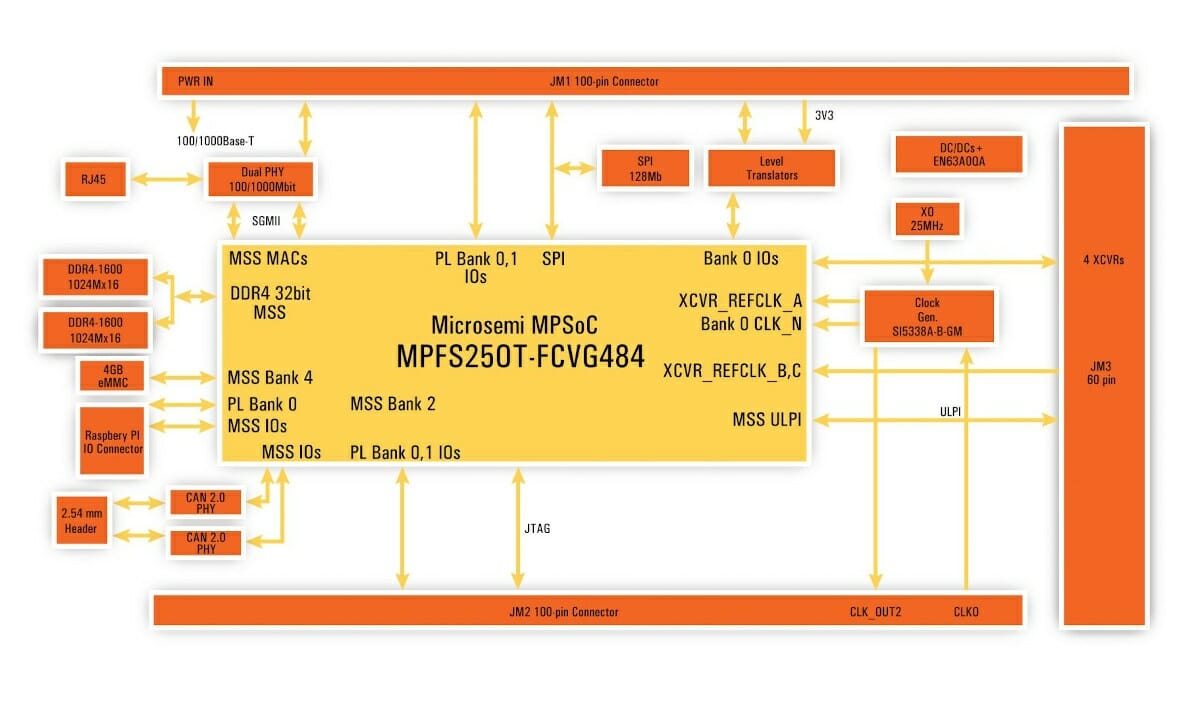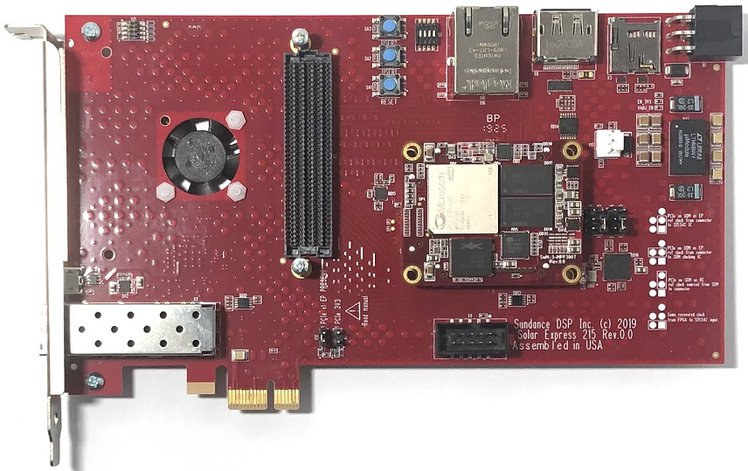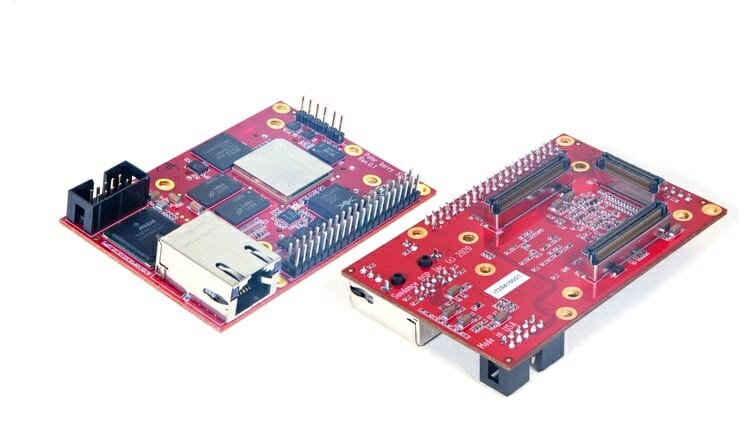SiFive may just have announced a mini-ITX motherboard for RISC-V PCs, but if you’d like a RISC-V Linux platform in a more compact form factor, Sundance PolarBerry may better fit your requirements, albeit the board will target different use cases.
Powered by Microchip PolarFire RISC-V SoC FPGA, PolarBerry is both a single board computer with Gigabit Ethernet and 40-pin GPIO header, as well as a system-on-module thanks to three Samtec board-to-board connectors.
- SoC – Microsemi PolarFire FPGA MPFS250T-FCVG484 penta-core processor with 1x RV64IMAC monitor core, 4x RV64GC application cores, FPGA fabric with 254K x logic elements (4LUT + DFF), 784 x math blocks (18 x 18 MACC), and 16 x SERDES lanes at 12.5 Gbps; 12 W maximum power consumption
- System Memory – 4 GB of 32-bit wide DDR4 memory
- Storage – 4GB eMMC flash, 128 Mbit SPI Serial NOR flash for boot image
- Networking – Gigabit Ethernet port
- Serial – 6-pin header with 2x CAN 2.0 PHY
- Expansion
- 2x 100-pin + 1x 60-pin Samtec connectors with 4x high-speed, low-power transceivers from 250 Mbps – 12.7 Gbps
- 40-pin Raspberry Pi header (3.3V I/O) with 6x GPIO, I2C and UART connected to RISC-V CPU, and 20 GPIOs configurable as SPI, UART, CAN, or other connected to FPGA.
- Clock Sources
- 1x 25 MHz XO with ±10 ppm stability over temperature, as reference
- 4x Silicon Labs SI5338A programmable clock sources, providing flexible clocking to FPGA and high-speed transceivers
- SPI interface from FPGA
- Bank 1 IO from FPGA including ULPI (UTMI+ low pin interface)
- Security
- DPA-resistant bitstream programming, crypto-processor, and secure boot
- Anti-tamper
- CRI DPA countermeasures pass-through license
- Debugging – JTAG header
- Power Supply – 5V or 3.3 input via Intel Enpirion EN63A0QA PowerSoC
- Power Consumption – 16 W max.
- Dimensions – 85 x 55 mm
- Temperature range – -20°C to +65°C

Just like Microchip own’s Polarfire Icicle development kit, PolarBerry will be supported by the Microsemi Mi-V ecosystem with Yocto, BuildRoot, FreeBSD as well as FreeRTOS, Zephyr, and others RTOS, and popular compilers such as GCC, IAR, and others. Supported tools include Renode & Libero, and the board will ship with a free Libero Silver License renewal (for free) each year.
While the board can be used as a standalone single board computer, it is also a system-on-module compatible with carrier boards such as the Sundance DSP SE215 pictured below with another module from the company.

PolarBerry is said to be best suited for applications that require high-performance at relatively low power with military-grade security and a real-time Linux-capable RISC-V processor such as autonomous vehicles or defense applications.
PolarBerry is not available just yet, but LinuxGizmos reports the SBC/SoM will be soon launched on Crowd Supply for $995 and shipments are expected to start in January 2021 [Update November 3rd: PolarBerry crowdfunding campaign has just started for $750 for the SoM, $750 for the carrier board]. Besides the aforementioned crowdfunding page, additional details may be found on the product page.

Jean-Luc started CNX Software in 2010 as a part-time endeavor, before quitting his job as a software engineering manager, and starting to write daily news, and reviews full time later in 2011.
Support CNX Software! Donate via cryptocurrencies, become a Patron on Patreon, or purchase goods on Amazon or Aliexpress





